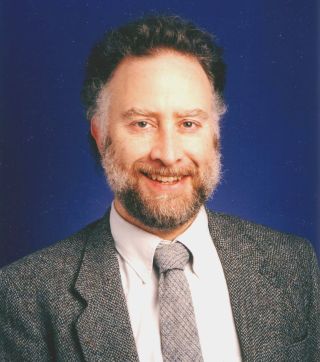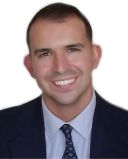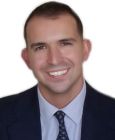Psychiatry
Defending Psychiatry: An Interview With Ronald Pies
Dr. Pies shares his views on mental illness, the future of psychiatry, and more.
Posted December 15, 2022 Reviewed by Jessica Schrader

Ronald W. Pies, M.D., is Professor Emeritus of Psychiatry and Lecturer on Bioethics and Humanities, SUNY Upstate Medical University; Clinical Professor of Psychiatry, Tufts University School of Medicine; and Editor-in-Chief Emeritus of Psychiatric Times (2007-2010). He is the author of multiple books on psychiatry, philosophy, religion, and psychotherapy.
Mark Ruffalo (MR): Dr. Pies, you are one of the best-known supporters of psychiatry in the world today, and your work has served as a great inspiration to me and so many others who see the great value in the profession. Can you tell us a little bit about what attracted you to psychiatry as a young man and medical student?
Ronald Pies (RP): Thank you for that kind introduction, Dr. Ruffalo. Elucidating and supporting psychiatry—often by clearing away some of the destructive ideological underbrush—has been a central concern of mine for nearly 40 years. You might say that I was "raised" for the field, since my mother was a psychiatric social worker and a protégé of Dr. Albert Ellis. During my college years at Cornell, I was intrigued by the interplay of neurobiology and psychology, and their connection to emotional disorders. In medical school, I had some outstanding teachers who presented psychiatry as a broadly humanistic science, which had great appeal to me. As one of my mentors in residency once put it, somewhat tongue-in-cheek, "In psychiatry, you can do biology in the morning and theology in the afternoon!"
MR: I know that during your residency at SUNY Upstate Medical University, one of your professors was the late Dr. Thomas Szasz, who is often described as an antipsychiatrist. Would you mind telling us a little bit about your relationship with Dr. Szasz, how it began, how it evolved, and whether the two of you were ever able to find some "common ground"? Do you agree with any of the major ideas Szasz espoused?
RP: First, let me say that it's hard for me to be objective regarding the man I came to know as "Tom," since our relationship was quite fraught and intense. My first contact with Szasz was during my third year of medical school. I was already intent on entering psychiatry, and—like millions of people around the world—was well aware of Szasz's renown and notoriety. His seminal work, The Myth of Mental Illness (1961), had been around for over 15 years, and was well known to me. I sought a meeting with Szasz, out of curiosity, admiration, and—I must admit—just a bit of adversarial intent. But I found the man quite disarming, in his courtly, "old world" way—he actually served me tea in his office! But once I entered residency, my profound disagreement with Szasz's "myth of mental illness" thesis created a lot of tension between us. And yet, I always felt a peculiar affection for the man, and I like to think he had just a scintilla of affection for me. In the last years of his life, we referred to each other, affectionately, as "fencing partners"! And I found much to admire in what you have rightly called Szasz's "... unwavering focus on the autonomy and self-determination of psychiatric patients …" (Ruffalo, 2018). I also agreed with Szasz's opposition to so-called "medical aid in dying"—properly termed physician-assisted suicide—as outlined in his book, Fatal Freedom: The Ethics and Politics of Suicide. There, his distinction between "rights" and "liberties" proved crucial in my own thinking about this issue.
MR: The history of psychiatry is one marked by several major vacillations between biological-organic and psychosocial theories of mental disorder. The 1990s and 2000s was an era of great excitement in biological psychiatry, yet it seems to me that in the past decade the pendulum is swinging back towards a more pluralistic approach. For instance, most residents I teach have great interest in psychotherapy and psychodynamic psychiatry. Do you have any predictions about the future of psychiatry—both in the short- and longer-term?
RP: Predictions are always hazardous, but I agree with you that psychiatry is slowly moving away from the so-called "biological revolution" of the 1990s to a more balanced and pluralistic model of illness and treatment. Indeed, Engel's "biopsychosocial model" has been—and remains—at the core of academic psychiatry, for at least the past 40 years, notwithstanding the market-driven forces that have greatly undermined its application (Pies, 2016). Over the next decade or two, I see psychiatry as evolving into a sub-specialty within the larger fold of "clinical neuroscience and behavioral medicine." I think psychiatry will come to rely more and more on nurse practitioners, clinical nurse specialists, and non-M.D. mental health professionals for most patients' needs. I suspect that most psychiatrists will tend to manage complex, treatment-resistant cases requiring the integration of sophisticated psychopharmacology with a psychodynamic and/or cognitive-behavioral component.
MR: What do you think is the most harmful misconception of psychiatry today?
RP: Unfortunately, there are many harmful misconceptions, but perhaps the most injurious is the notion that psychiatrists habitually ignore the psychosocial aspects of mental illness and are interested only in "chemical imbalances"—a myth I have taken pains to dispel over the last decade (Pies, 2022). If you read the DSM-5 introduction carefully, it's clear that psychiatrists are prohibited from making an official DSM diagnosis without a careful biopsychosocial case formulation (Pies, 2021).
MR: As you know, I have come to agree with your view that disease is best characterized as some problem that causes a combination of suffering and functional impairment in the afflicted individual which may or may not be associated with any demonstrable biological abnormality. Yet, this definition opens the door to the characterization of a whole host of nonmedical problems, such as poverty and racism, as diseases. How does your view account for this?
RP: Yes, I have often heard this criticism of my view of disease; i.e., that "suffering and incapacity" may be the result of poverty, terrorism, ecological disaster, etc. But I think our "ordinary language" use of the term "disease" readily clears away this objection. For example, most people would acknowledge that a person who is abducted and tortured by terrorists will experience suffering and incapacity, but few would call this condition "disease." We normally impute "disease" to a condition in which the suffering and incapacity are not evidently related to some obvious external precipitant, such as a bullet wound, an earthquake, an automobile accident, etc. And as the philosopher Ludwig Wittgenstein famously reminded us, there is nothing wrong with ordinary language!
MR: Thank you so much, Dr. Pies, for agreeing to this interview and also for your help and guidance early in my own career. You have served as a great mentor and friend. What would you suggest to readers as a good "primer" or introduction to your thinking on psychiatry?
RP: Many thanks for this opportunity, Dr. Ruffalo, and for the privilege of collaborating with you on several projects over the last few years. Since I have been at this thing called psychiatry for nearly 40 years, it's hard to single out one source or "primer" that reflects my overall view of the profession. But I suppose that my writing about the "biopsychosocial model" is as good a place as any to start (Pies, 2016). An easily accessible piece that covers much of this territory is found in Psychiatric Times (Pies, 2020). And again, Mark, thank you for fostering this exchange!
References
Pies R. W. (2016). Comments on "cyclical swings" by Professor Hannah Decker: The underappreciated "solid center" of psychiatry. History of Psychology, 19(1), 60–65. https://doi.org/10.1037/hop0000019
Pies, R. W. (2020). Can we salvage the biopsychosocial model? Psychiatric Times. https://www.psychiatrictimes.com/view/can-we-salvage-biopsychosocial-mo…
Pies, R. W. (2021). Poor DSM-5—So misunderstood! Psychiatric Times. https://www.psychiatrictimes.com/view/poor-dsm5-so-misunderstood
Pies, R. W. (2022, March 17). The myth of the chemical imbalance. Return. https://return.life/2022/03/17/the-myth-of-the-chemical-imbalance/
Ruffalo, M. L. (2018, June 14). Revisiting Szasz: Myth, metaphor, and misconception. Psychology Today. https://www.psychologytoday.com/us/blog/freud-fluoxetine/201806/revisit…




